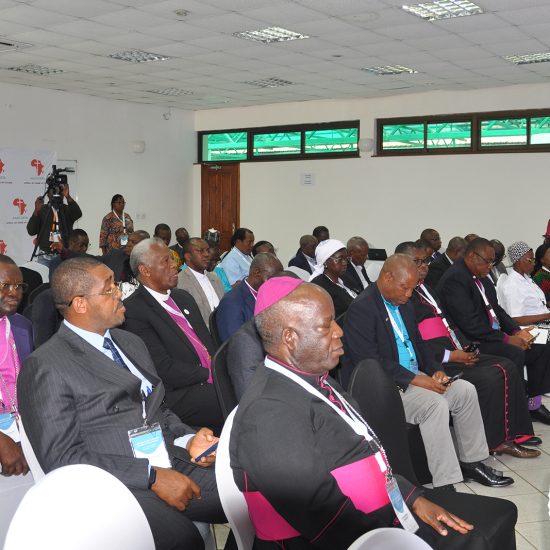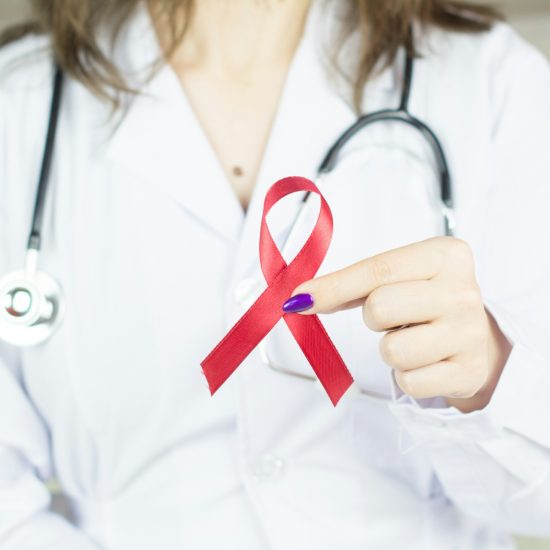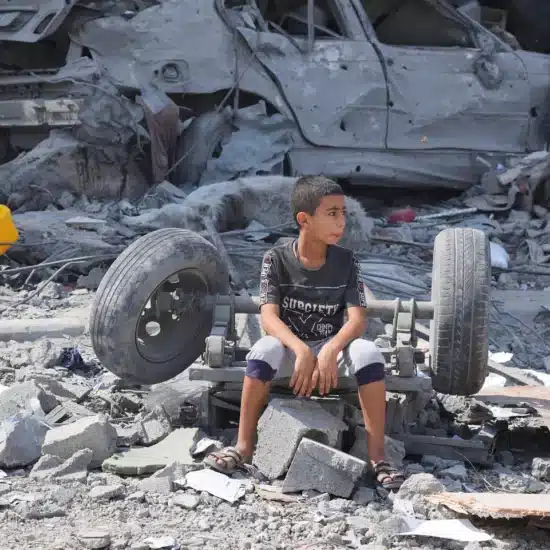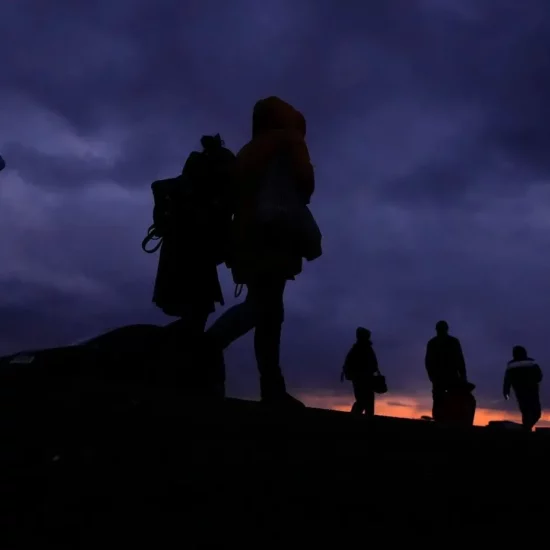Roughly 40 million internally displaced persons (IDPs) are currently in 50 nations, according to a United Nations Office for the Coordination of Humanitarian Affairs (OCHA) report.
Displaced by conflict, impacts of climate change and natural disasters, most IDPs are forced to live away from their homes for several years, and some for decades.
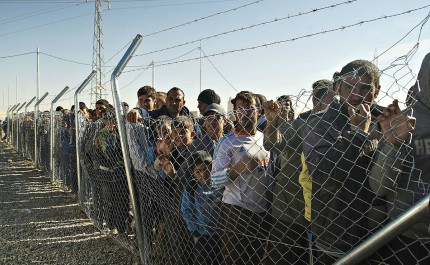 IDPs usually depend on humanitarian aid to survive and live in poverty without sufficient access to education, health care and other basic needs. (Photo: Mstyslav Chernov / Wikimedia Commons)“Protracted conflict, a lack of political will, and countries’ inadequate normative and institutional frameworks and disregard for human rights are key reasons why internal displacement becomes protracted,” OCHA explained.
IDPs usually depend on humanitarian aid to survive and live in poverty without sufficient access to education, health care and other basic needs. (Photo: Mstyslav Chernov / Wikimedia Commons)“Protracted conflict, a lack of political will, and countries’ inadequate normative and institutional frameworks and disregard for human rights are key reasons why internal displacement becomes protracted,” OCHA explained.
IDPs usually depend on humanitarian aid to survive and live in poverty without sufficient access to education, health care and other basic needs.
When displacement is protracted, IDPs often come to be seen as a burden on their new communities, which can lead to marginalization, discrimination and increased vulnerability.
They also struggle to retain the social cohesion provided by shared “cultural, political and religious activities and practices.”
While humanitarian assistance is vital, “protracted internal displacement is primarily a development and political challenge with humanitarian elements,” the report asserted. “With durable solutions out of reach and facing barriers to leading self-sufficient lives, they are ‘left behind.'”
OCHA concluded, “The traditional approach – prioritizing responses that meet short-term humanitarian needs, such as immediate food aid, hygiene and shelter – has largely failed to achieve durable solutions for the ever-growing number of IDPs worldwide.”
Therefore, humanitarian aid must be coupled with initiatives seeking to enable IDPs to restart their lives in a new community or to return home and rebuild.
This necessitates “a fundamental shift from meeting immediate humanitarian needs to preserving the dignity and improving the lives and self-reliance of IDPs,” the report emphasized.
Recommendations to facilitate this shift include increasing collaboration among all parties – from governments (national and local) to civil-society organizations to IDPs and their host families.
It also necessitates increased focus on providing access to housing, basic services and education (including vocational training) as well as “address[ing] the risk of aid dependency, even during ongoing conflict or the immediate aftermath of a disaster.”
In all interviews conducted with IDPs for the report, “IDPs said they wanted to live productive and self-sufficient lives,” OCHA revealed. “They want jobs and the opportunity to farm their land. They want schools for their children so that they can go on to fulfill their potential in the future.”
The full report is available here.
This article originally appeared on EthicsDaily.com.

